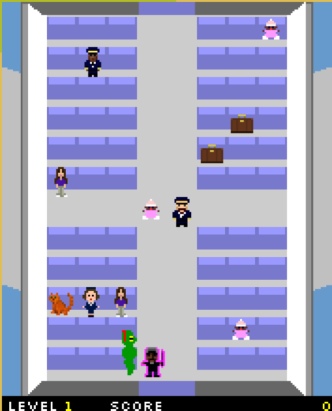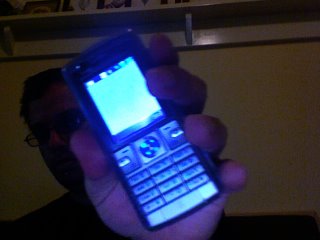
All rational arguments for development on mobile phones aside, some phone owners are driven by the irrational, purely personal need to tap into their phones and do stuff. Our friend Sebastian Tomczak reports back on a first experiment with the mobile version of Processing, the Java-based “coding for artists” tool.

This is nothing fancy, but that’s the point: simple is the best way to get started. It’s the sound version of “Hello, World.” In programming, I find, even simpler than I think is necessary is often the best place to start. Erm, especially if you’re me and screw things up really quickly.
Mobile Processing is an example of what the future could look like if we could program phones with standard Java libraries. After all, your phone is a computer — often a pretty expensive computer, considering. And then, when you upgrade, it becomes useless without service. Recycling phones into something useful is only natural. And because they’re simple computers, there’s an opportunity to return to the days when programming was actually considered a killer app — for “end users.”
And yes, this does fit in the category of “things you can’t do with Ajax on iPhone and can do with zillions of other, cheaper phones.” I’m glad to be over the “what might actually impact iPhone sales” category and into the “completely useless phone applications that appeal only to insanely geeky musicians” area again. Phew! Much better.
Non-Processing/Java geeks can stop reading here, but I should elaborate a bit. Mobile Processing is much earlier in development than the other tools we routinely mention here. On the visual side, Marius Waltz (of Code & form fame) was recently seen in shock at how alarmingly primitive phone programming can be. The issue comes back to what Apple chose not to do — hardware-specific SDKs — though, in fairness, mobile Java has gotten much more consistent across the hardware. The issue is how conservative the core Processing libraries are; if you really want features, you’ll want the bleeding-edge, higher-end stuff recently added to the external libraries section of the Mobile Processing site.
At least, I think. My Processing work has all been desktop-bound. I’ll be hanging out next week in Aspen, Colorado with Processing’s creator, Ben Fry; I’ll be sure to report back on what I learn. And later this summer, I intend to do more mobile work. Since Sprint just sent me a Samsung UpStage, naturally, I’ll have to make something for it.